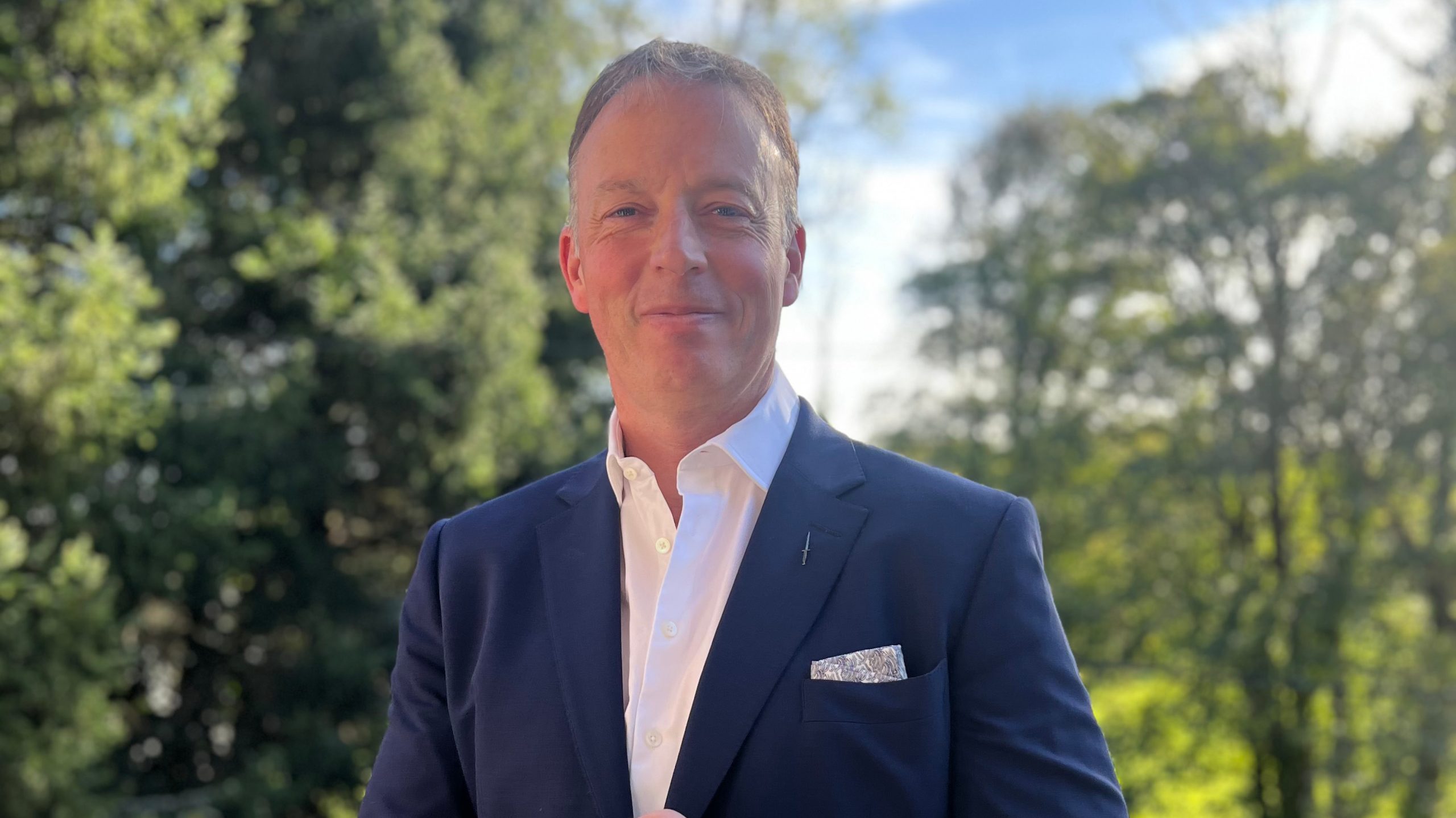
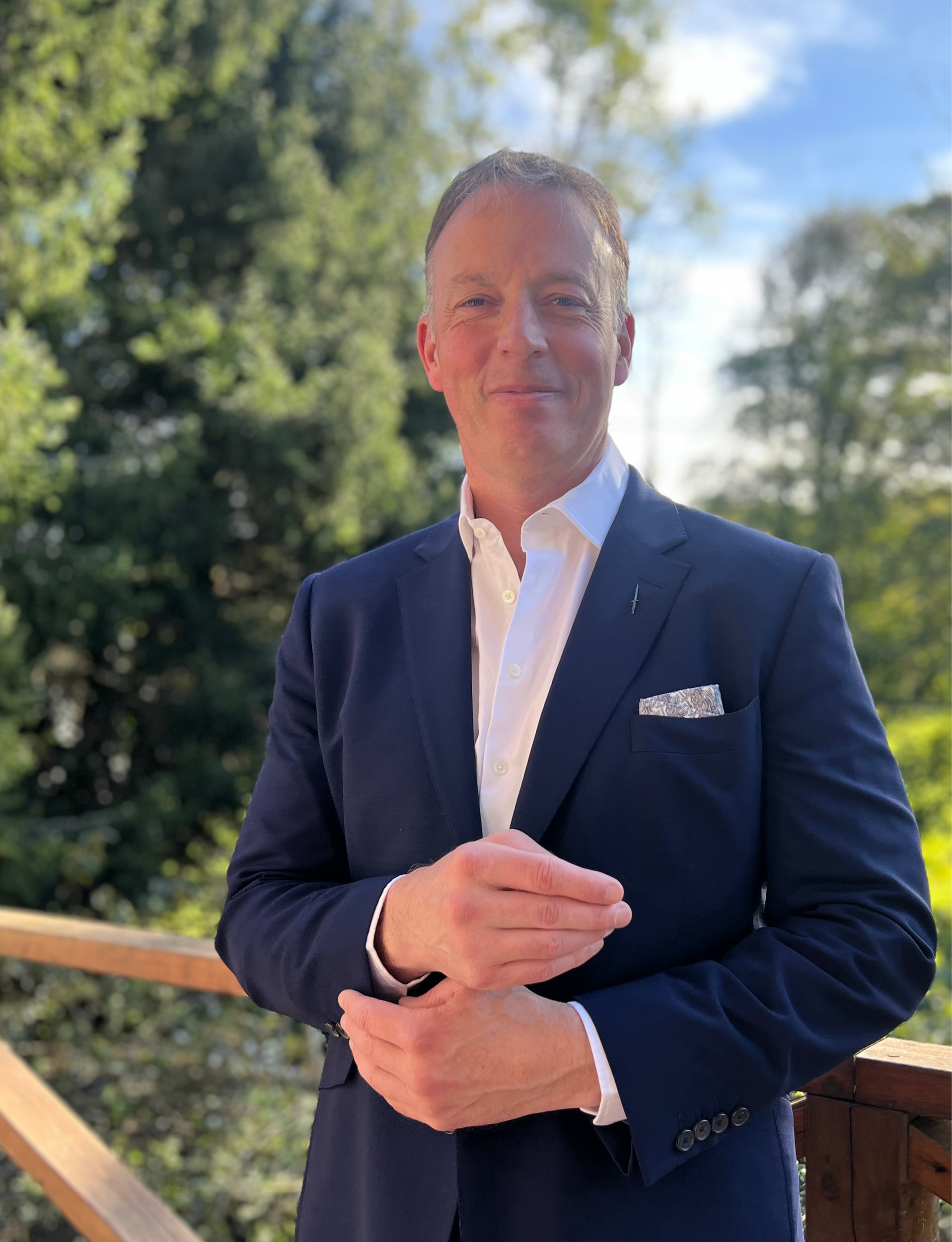

Having led Royal Marines Commandos in global conflict zones, Mark Hardie is enjoying a second career imparting his hard-won leadership knowledge and skills to organizations, individuals and – since last year – to Glion Master’s students.
From the very first issue of The Insider three years ago, we’ve showcased insights offered by leaders from across the spectrum of luxury and hospitality. Now it’s time for our keynote feature to transmit genuine Leadership Insights that can fuel your career ambitions.
They come from a man who has led teams through some of the most demanding scenarios possible, and who now deploys that experience as a leadership coach to Private Equity backed leaders, as well as mentor, author, consultant, and Glion Visiting Lecturer.
Mark Hardie MBE cut his leadership teeth as a Royal Marines Commando, serving actively during a period of almost continuous operations that took in some of the world’s harshest environments. Later in his career with the Royal Navy he was exposed to the rawest human emotions, in a role supporting the repatriation of those who’d died in service. He also had the honor of organizing the final military parade for HRH Prince Philip, Duke of Edinburgh.
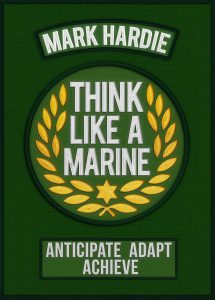
These experiences have given Mark an unusually nuanced view of what makes a good leader, how to deal with adversity, how to unlock one’s potential, and how to bring empathy and other ‘human skills’ to the role.
Much of this is encapsulated in his book, Think Like a Marine, while Glion students of the Master’s in Hospitality Business Leadership also receive the benefit of his unique perspectives through the Adaptive Leadership course he runs during the first semester of the program.
The Insider traveled to interview Mark at his home tucked away in the delightful Hampshire countryside, with leadership insights very firmly on the agenda…
The Insider (TI): How would you say your time in the military developed you as a person and a leader?
Mark Hardie MBE (MH): I spent 20 years in total as both a regular and a reservist, and during the period in which I served I was lucky to be in frontline Commando units for most of that time. I think one of the biggest things this taught me was that the problem we are facing will always win, unless we adapt. And that’s true whether you are in a Commando operation or facing a challenge in business, within your market or competitive environment. If we want to overcome such challenges, we must be willing to accept the feedback of reality and adapt.
From a leadership perspective, probably the most important thing it taught me is that you are being watched all the time, so how you behave really matters because it will rub off on your team. This is something that goes right back to my Basic Training in the Marines, but it’s absolutely vital to have daily routines as much as possible, and to be reliable, predictable, consistent. Leaders should strive for individual excellence.
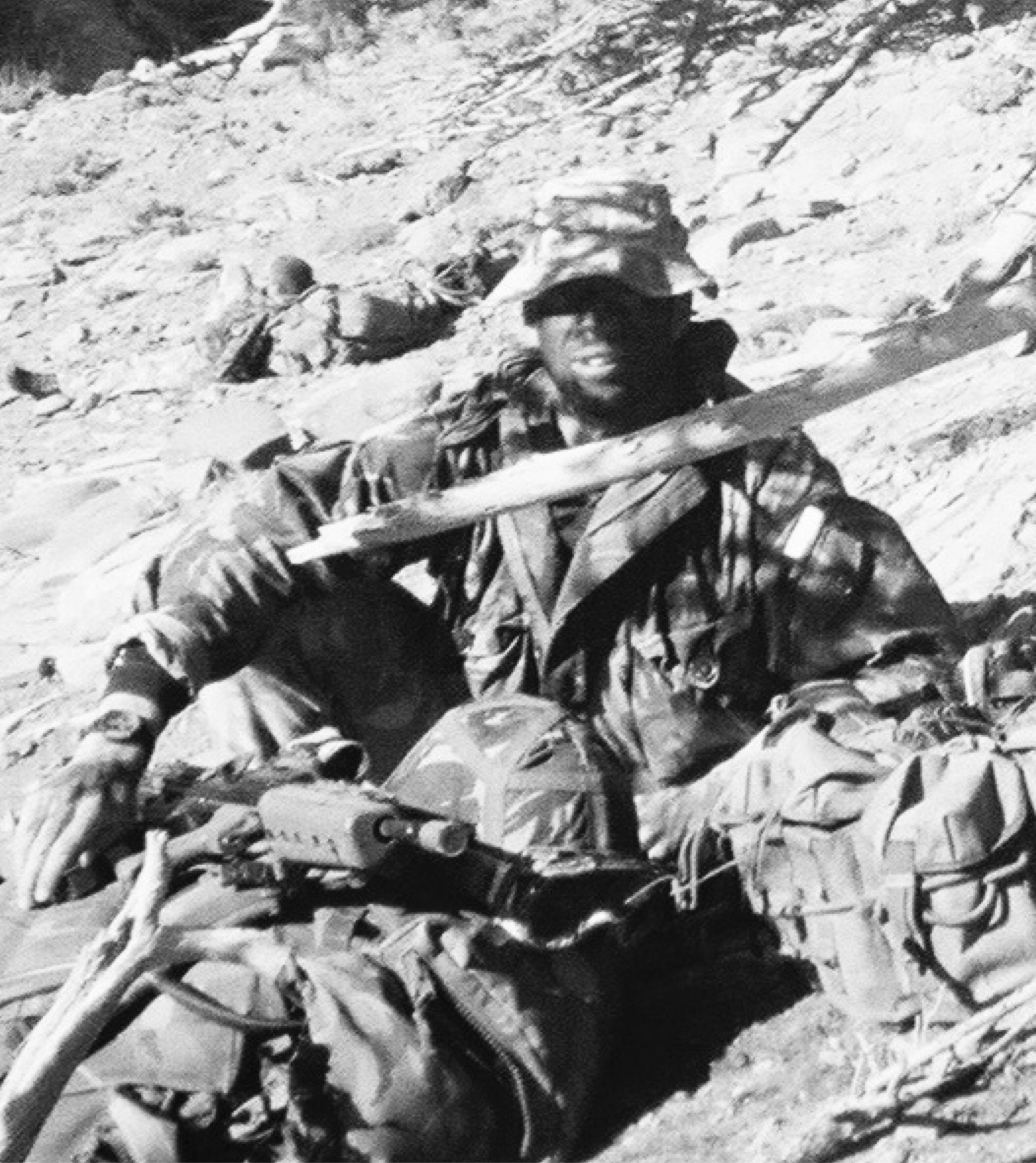
TI: Thinking back to your time as a Commando Leader, what was the most dangerous scenario you were pitched into?
MH: Well, the first thing I would say is that there are Marines who have done far more combat activity than me. But early on in my career we were part of an operation in Sierra Leone during the Civil War there, initially to help with the evacuation of British nationals. During that time a group of our soldiers was taken hostage by a local militia called the West Side Boys. My team was involved in the early stages of the search for those men; and later we were on the periphery of what became a Special Forces hostage rescue.
The danger came from our lack of experience in such situations, but we were able to fall back on our training and adapt to the changing environment. Ultimately it was a successful operation, and that came down to the teamwork between the Royal Navy, the Army, the Special Forces teams and to the casualty management in Freetown, which my team was supporting.
TI: Do you see any parallels with leadership in high-risk combat operations and the pressures of leadership in the corporate world, and are there any learnings from the former that can be applied in the latter?
MH: In both cases you have to think about the difference between hazards and risks. In the military the hazard is the thing that will harm or kill you – from bullets on the battlefield to the ground if you are parachuting. The risk is how close we can get to the hazard, and to allow us to operate as closely as possible we are given training, body armor, weapons, parachutes, etc.
In the corporate world the hazards may be less kinetic – outside of a few industries they are not likely to injure or kill you – but they are very real and people’s livelihoods are still at stake. In both environments, teamwork really matters so we add collective orientation to individual excellence to guide us through challenges.
TI: Of course, things do go wrong, and crises hit teams and organizations on a frequent basis. What are the secrets to dealing with adversity when it strikes?
MH: By their nature, shocks will happen to your business on a normal day. You know, when Sullenberger had to land his plane in the Hudson River that was just a normal day, a normal take-off, right up until it wasn’t. So the best way to deal with adversity is to be ready for it; and that comes down to having good routines, good daily habits, but also good culture, communication and teamwork. You need as few vulnerabilities as possible, because if your vulnerability is high due to cultural division and internal friction, that’s going to be a big obstacle to you responding properly.
It’s also vital to share the load – and this is something that leaders can find challenging, because they don’t like the feeling of losing control. It means asking for help, bringing in your team and also talking to your family, and to people you trust. Most importantly, you must be resilient and keep going. We all have this resilience in us, but it needs to be nurtured. That is one of the topics I look at in my leadership module for the Glion students – the starting point is self-awareness, just understanding who you are as a leader, then thinking about how you will lead in adversity and the building blocks to that.
TI: Do you think exceptional leaders can be built from these blocks, or is there something inherent that separates the truly great figures?
MH: If you’re thinking about an Ernest Shackleton, leading his team across the ice floes, then certainly there’s something special about people like that. A level of personal charisma that’s beyond almost all of us. That said, I also think anybody can acquire the skills to be a good leader. All I really ask is for people to become ‘C grade’ competent – show up on time, be kind, do your job competently and ethically.
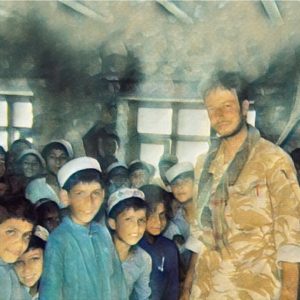
In a military operation, the biggest threat is not the enemy, it’s incompetent leadership on your own side. People who fail to learn in the face of what’s going on in front of them, fail to anticipate changing situations, and fail to adapt in real time. The natural logic would be that all military leaders are amazing, but it simply isn’t true – history is littered with incompetent failures.
TI: What for you is the first step on the pathway to becoming a good, competent leader?
MH: For me, the first step is to understand how you personally make decisions; because only once you’ve done that can you make a conscious choice to get better at it. It comes back to the self-awareness thing that I see as the core of an effective leader. It’s also OK to admit that you don’t know everything on day one. You have to switch on the feedback loops so people can tell you what’s working and what isn’t. Nine times out of ten the people on the frontline will have an idea for a better way of doing things, but if they don’t have a means to tell you, there’s a problem. Communication is essential.
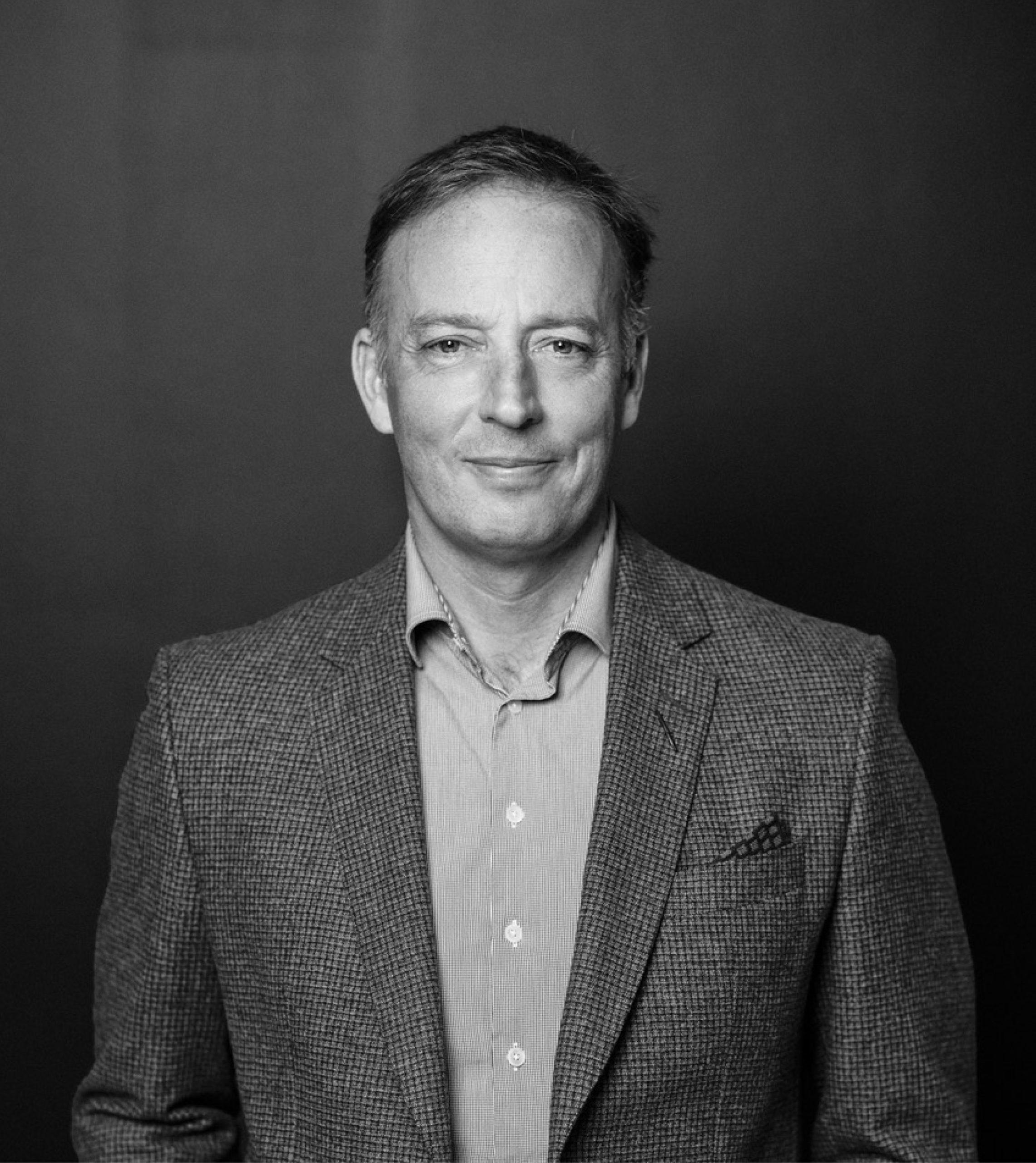
TI: Turning back to Glion for a moment, how did your relationship with the school come about?
MH: Through “Jay” (Jonathan) Humphries I became aware that Glion was looking to refresh the leadership module of the Master’s in Hospitality Business Leadership. They asked if I’d be interested in applying. I already had a bit of an academic background from my time in the Royal Marines and as a visiting professor in Leadership, Ethics and Professional Practice. So I applied, explained my philosophy of what I wanted to do with the course, which is more from a practical perspective, and got the job!
I can honestly say that it is one of the most challenging and enjoyable periods of my career to date. It is a truly international cohort and I learn so much from all the students. I am 50 this year, and to get to share my experience and help develop the future leaders of international hospitality feels like an honor.
TI: In your book you talk about managing conflict, adding that conflict is not necessarily a bad thing provided it is handled correctly. Can you tell us more about that?
MH: Poorly managed conflict damages organizations, but well managed conflict accepts opposing views and uses them to come to a more creative solution. In music, when you hear singing in harmony it doesn’t mean everyone is singing exactly the same; they’re singing differently but it’s complementary and the overall effect is beautiful.
So conflict should not be discouraged; however, it’s a big mental leap for a leader, particularly if the other person’s idea is in conflict with yours. It takes strength of mind to be able to take a step back, listen to the other idea, and adopt it ahead of your own. But if everyone thinks the same then someone isn’t thinking!
TI: Your professional biography references ‘human skills for leaders’. What are these, and how does one go about developing them?
MH: This is another way of referring to ‘soft skills’, or what engineers call ‘non-technical skills’. For me, the most important seven of these – though there are more – are situational awareness, teamwork, leadership, decision-making, communication, managing fatigue, and coping with stress.
In a world where everyone talks about high performing teams the key point to remember – and I think this is absolutely critical for leaders – is that to be a high performing team, it is not about the quality of the individuals, or talent, at any level from the boardroom to the cleaning staff. It is about the quality of the interactions and relationships between those individuals. I really believe that the whole area of high performance, and the wellbeing to support it, needs a complete reset. In fact, that is where I am currently developing my work and building an incredible team to change our relationship with rest and reset our relationship with work and leadership.
TI: We will watch developments there with interest! Changing tack slightly, you are also working in the field of risk planning and advisory. From that standpoint, do you feel the world is a riskier place than it was, say a decade ago?
MH: Yes, I’m working with Risk Intelligence, based in Copenhagen. We provide an innovative digital solution to the age-old problem of timely intelligence to support decision making. On land in the luxury brand supply chain and in the maritime domain we work closely with luxury yachts and boutique cruise operators to ensure they make the best decisions – how to mitigate the pervasive threats – or we can help with timely exploitation of opportunities.
We’ve obviously got this big, kinetic war going on in Ukraine, plus there are threats to the global supply chain – for example, we’ve seen that it doesn’t take much to close the Suez Canal. In addition, we have the ongoing threat from climate change, and we’re experiencing threats to the social fabric of many countries, such as the disturbances we saw in France earlier this year.
We can have little influence on these external threats, but we can reduce the risk they pose to our organizations by reducing our vulnerabilities. I really like the equation coined by Stan McChrystal, a retired US Army general, which is threats x vulnerability = risk. For many organizations today, the threats are severe, so that’s a high number. And these are hard to influence: as individuals or businesses we cannot reduce inflation or bring peace to Ukraine. So, I’d encourage any organization to look at their vulnerabilities – poor systems, poor relationships between people, poor collective orientation between groups and departments, poor management of conflict, toxic leaders being allowed to flourish, good people choosing to leave the organization… if that vulnerability number is also high then you have a big multiplier and your risk is going to be very high indeed.
TI: And so it becomes imperative to get that vulnerability number down.
MH: Absolutely imperative. And that means leaders have got to be more adaptable, quicker to observe what’s going on, and orientate themselves effectively using the whole structure of the organization. They must make decisions and keep going through it, because there’s no way out. If you don’t do that, the problem will win. The market will win.
TI: Mark Hardie, thank you so much for those valuable leadership insights!
- Mark Hardie’s book, Think Like a Marine, can be ordered from all good booksellers, including Amazon
Join the leaders of hospitality
As our flagship graduate degree, the Master’s in Hospitality Business Leadership delivers the complete hospitality leadership toolbox, with study options in Switzerland and London.
















